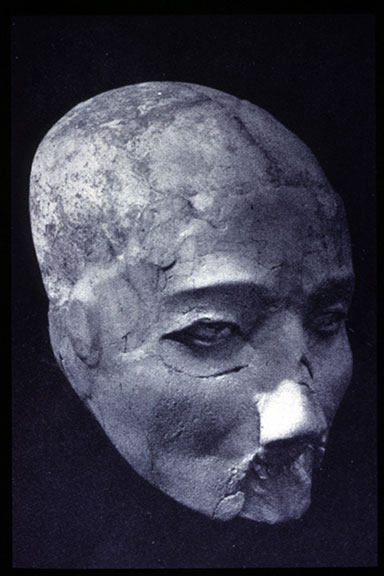for two trombones and computer
Commissioned by Niels-Ole Bo Johansen and Chris Houlding with support from the Danish Arts Foundation
Jericho (West Bank) is one of the oldest continuously-inhabited cities in the world, with settlements dating back to 9000 BC. In the course of its long history, the city has been controlled by countless rulers, including Assyrian, Babylonian and Persian. In classical antiquity, Jericho served as the private estate of Alexander the Great. The Christian Bible states that Jesus passed through Jericho where he healed two blind men and converted a local tax collector named Zacharias.

Christianity took hold in the city during the Byzantine era, around 300 AD. Later, the city came under Islamic rule, was eventually invaded by the Christian Crusaders and finally taken by the Turks. During World War I Jericho was controlled by the British and then captured by the Jordanians in the 1948 Arab-Israeli war. Jericho was captured by Israel in the Six-Day War of 1967 and handed over to Palestinian Authority control in 1994.
Soon after, The Oasis Casino was established in an attempt to promote Jericho as a sort of Las Vegas of the Middle East. The casino thrived and often had a daily turnover of close to a million dollars. In late 2000 Hamas used its roof for gunfire attacks at Israeli targets. The building was heavily damaged by Israeli retaliatory fire, and though it was later refurbished, it has never re-opened. Jericho was re-occupied by Israel during the Al-Aqsa Intifada of 2001.
Jericho is mentioned over 70 times in the Hebrew Bible. The Book of Joshua describes the famous battle of Jericho. After crossing the Jordan, Joshua led the Israelites into Canaan where they laid siege to the city of Jericho. The Lord spoke to Joshua telling him to march around the city once every day for six days with the seven priests carrying ram’s horns in front of the ark. On the seventh day they were to march around the city seven times and the priests were to blow their ram’s horns. This Joshua did, and he commanded his people not to give a war-cry until he told them to do so. On the seventh day, after marching around the city the seventh time, the priests sounded their ram’s plastered skull, Neolithic Jericho, 8,000 B.C. horns, and Joshua ordered the people to shout. The walls of the city collapsed, and the Israelites were able to charge straight into the city. The city was completely destroyed, and every man, woman, and child in it was killed. Only Rahab and her family were spared, because she had hid the two spies sent by Joshua. After this Joshua burned the remains of the city and cursed any man who would rebuild the city of Jericho at the cost of his and/or her firstborn son or daughter.
Jericho 2.0 is composed for two trombones and computer. References are made to various scenes in the history of Jericho, including the battle of Jericho of biblical times as well as to the destruction of the Oasis Casino in 2000 AD.
Download programme note as PDF: Jericho 2.0
